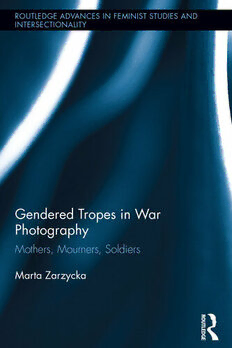
Gendered Tropes in War Photography: Mothers, Mourners, Soldiers PDF
02016·1.153 MB·English
Most books are stored in the elastic cloud where traffic is expensive. For this reason, we have a limit on daily download.
Preview Gendered Tropes in War Photography: Mothers, Mourners, Soldiers
Description:
Photographic stills of women, appearing in both press coverage and relief campaigns, have long been central to the documentation of war and civil conflict. Images of non-Western women, in particular, regularly function as symbols of the misery and hopelessness of the oppressed. Featured on the front pages of newspapers and in NGO reports, they inform public understandings of war and peace, victims and perpetrators, but within a discourse that often obscures social and political subjectivities. Uniquely, this book deconstructs – in a systematic, gender-sensitive way – the repetitive circulation of certain images of war, conflict and state violence, in order to scrutinize the role of photographic tropes in the globalized visual sphere. Zarzycka builds on feminist theories of representations of war to explore how the concepts of femininity and war secure each other’s intelligibility in photographic practices. This book examines the complex connections between photographic tropes and the individuals and communities they represent, in order to rethink the medium of photography as a discursive and political practice. This book interrogates both the structure and transmission of contemporary encounters with war, violence, and conflict. It will appeal to advanced students and scholars of gender studies, visual studies, media studies, photography theory, cultural anthropology, cultural studies, and trauma and memory studies.
See more
The list of books you might like
Most books are stored in the elastic cloud where traffic is expensive. For this reason, we have a limit on daily download.
